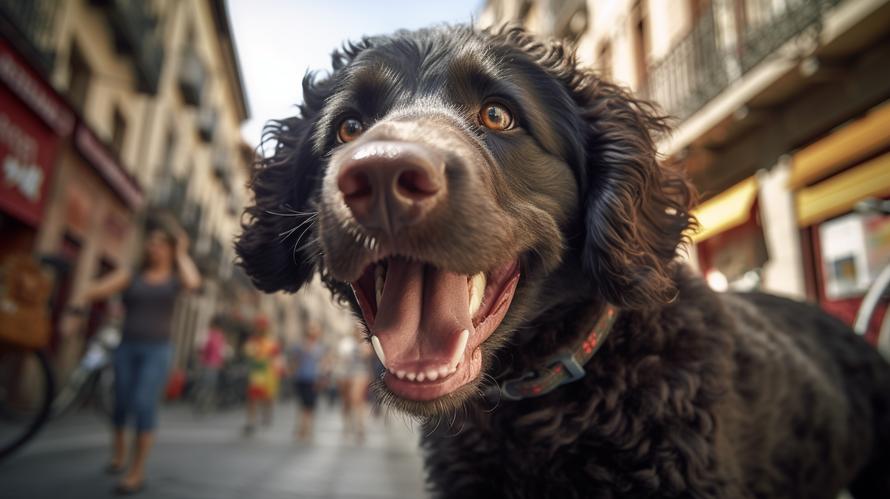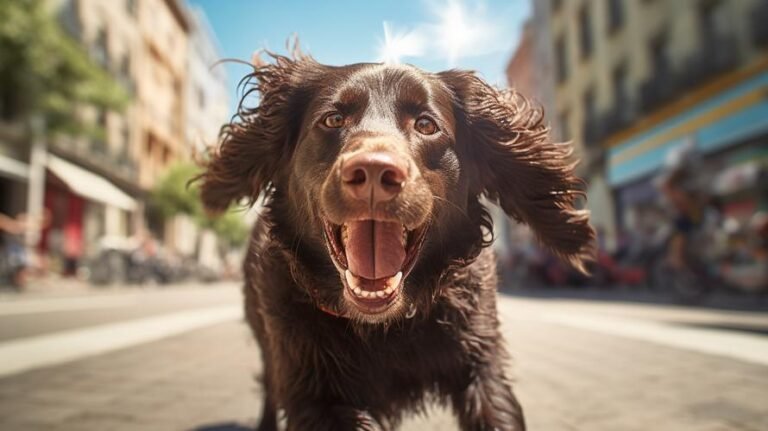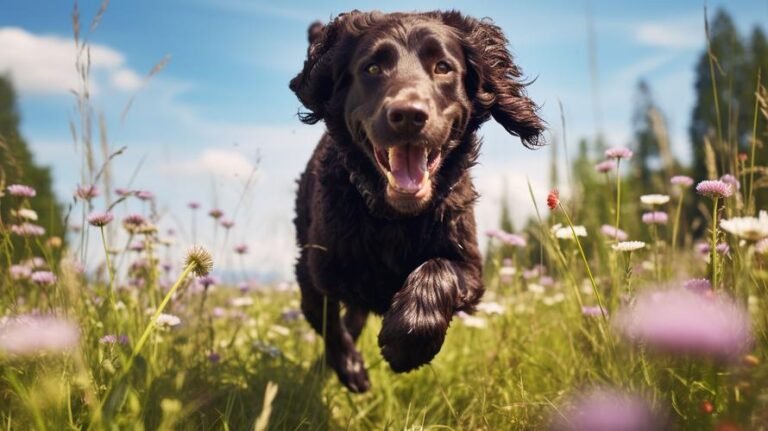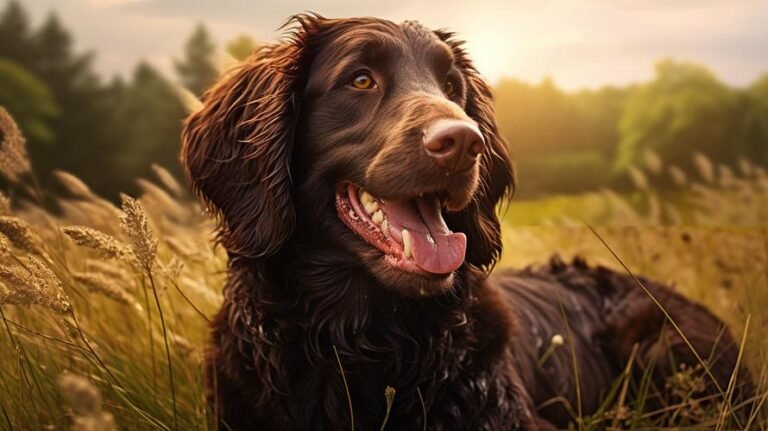Curly-Coated Retrievers are one of those unique breeds which are known for their distinctive, water-resistant coat and their adaptability. They are known for their loyalty, trainability, and strong athletic abilities. But did you know these captivating canines are not just protective about their owners but are quite picky when it comes to what they chow down?
So, if you’re a proud owner of a Curly-Coated Retriever, or just adopting one from a nearby shelter, this comprehensive guide will unravel the mystery of what is the best food to serve your Curly-Coated Retriever. With this in-depth information, you can ensure your furry friend is healthy, strong, happy, and energetic.
A Full Plate, A Full Life
Curly-Coated Retrievers are known for their strength and agility, which makes them active dogs that require a well-balanced diet to sustain their energy levels. They need a diet rich in protein, healthy fats and whole grains. Foods with high-quality protein such as chicken, turkey, and fish serve as the building blocks for strong muscles, promoting overall physical health.
Omega-3 and Omega-6 fatty acids, found in foods like salmon, flax-seeds, and chia seeds, contribute to a healthier coat and skin. They also enhance brain and eye development while promoting heart health. Whole grains, such as quinoa, brown rice, and oatmeal, are power-packed with fiber, contributing to better digestive health, and enabling your cute canine to feel fuller longer.
A Controversy to Chew On: Raw vs. Commercial Food
If you’ve done any dog food research before, you’ve undoubtedly stumbled upon the heated debate between supporters of raw food and those advocating for commercial dog food. It’s time to put the debate into perspective.
Raw food advocates argue that it’s natural, unprocessed and hence, healthier for dogs. A raw diet, usually consisting of muscle meat, bones, fruits, vegetables, and organ meats, promotes shinier coats, healthier skin, higher energy levels and cleaner teeth. Moreover, raw food enthusiasts claim that it helps reduce doggy odor.
However, some veterinarians concern about the challenges and potential risks associated with a raw food diet. These can include the threat of ingesting harmful bacteria present in raw meat and the risk of an unbalanced diet, which may lead to nutritional deficiencies or excesses over time.
On the other hand, well-regarded commercial dog food, complying with AAFCO’s dietary guidelines, ensures that dogs receive a balanced diet, rich in all the necessary nutrients. Commercial dog foods, be it dry (kibble) or wet (canned), have the advantage of being convenient, easily portioned, long-lasting, and safer in terms of bacterial complications.
Therefore, the choice between raw and commercial food boils down to your personal preference, your dog’s digestion, and the advice from your trusted vet.
Dispelling the Myth: One Dog Food Fits All
It’s a common misconception that all dogs can thrive on the general “all breed” dog food. However, the nutritional requirements of each breed can vastly differ based on their metabolism, size, and energy levels. Curly-Coated Retrievers, being athletic and full of energy, require a diet that matches their level of physical activity.
Therefore, when choosing commercial dog food, opt for a high-quality brand that specifies it’s formulated for “active, large breed dogs.” This ensures your Curly-Coated Retriever will receive the additional nutrients required to support their active lifestyle.
Avoid feeding them dog food designed for smaller breeds or less active dogs, as these won’t contain the necessary protein and calorie content to keep your energetic retriever happy and healthy.
To Treat, or Not to Treat?
Treats, for dogs, are like desserts for us, irresistible yet require moderation. Rewards in form of dog treats are excellent tools for training your Curly-Coated Retriever. However, treats should be monitored so that they don’t exceed 10% of your dog’s daily calorie intake. Stick with low-calorie, nutrient-rich treats, and avoid those with artificial preservatives, coloring agents, and flavors.
In conclusion, nourishing your Curly-Coated Retriever properly requires a good understanding of their nutritional needs, their activity level and their personal preferences. A well-fed Retriever is a happy and healthy Retriever. Always remember to consult your vet before making any major changes to your dog’s diet. The recipe for a healthy Curly-Coated Retriever includes balance, moderation, and loads of love!



